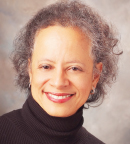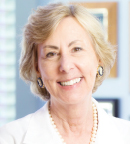Lori J. Pierce, MD, FASTRO, FASCO, of the University of Michigan, and Carolyn D. Runowicz, MD, FASCO, of Herbert Wertheim College of Medicine, Florida International University, Miami, were selected by the ASCO Nominating Committee as candidates for President-Elect.
Why do you want to serve as ASCO President?
Lori Pierce: ASCO is the most influential organization of oncology physicians and oncology professionals in the world. Although its name is the American Society of Clinical Oncology, its impact touches patients and caregivers in all corners of the globe. Both academic and private practice oncologists need representation in this changing health-care environment. Physicians from all specialties need a society in which their ideas can be jointly supported. Separate professional societies for each of the oncology disciplines serve an important role in professional development. In my opinion, however, the coming

Lori J. Pierce, MD, FASTRO, FASCO
together of oncology providers from all specialties and from all levels of patient care not only facilitates multidisciplinary care for diseases that require expertise from multiple care providers, but also provides opportunities for oncology professionals to interact more broadly and strategize regarding new treatment approaches and efficiencies in cancer care. There is power in numbers and diversity of opinions and that power often translates into improvements in care delivery. I want to serve as President of a society that understands the importance of and encourages contributions from all oncology professionals. I want to serve as President of a society that represents the needs of practitioners across the landscape of both academic and private practice settings. And finally, I want to serve as President of a society that emphasizes high-quality patient care independent of social and financial strata. I want to serve as President of ASCO.
Carolyn Runowicz: My career has prepared me with the skill sets and leadership required for this time-honored position. As an ASCO member for more than 30 years, I have been actively engaged in many ASCO committees, as a member and committee chair and as a member of the ASCO Board of Directors. This experience in ASCO provides me with the background to make a meaningful difference as President. My experience in academic medicine, clinical practice, research, and medical education further enhance my qualifications. My perspective as a gynecologic oncologist, cancer center director,

Carolyn D. Runowicz, MD, FASCO
and in the care of patients with cancer has provided me with firsthand knowledge of the challenges that we face in oncology. As a member of the ASCO Board of Directors, I realized how vital this organization is not only for its physician members, but also for patients and cancer survivors. The organization plays a pivotal role in mentoring and furthering the careers of young oncologists. My experience as a mentor and in medical education will add to the depth and breadth of ASCO leadership. As President, I hope to serve as a role model to encourage students and residents to pursue a career in oncology and mentor future generations of oncologists.
Discuss three key issues that ASCO and the -oncology field are currently facing, and how you wish to make an impact on these issues as ASCO President.
LP: There are many challenges facing oncologists that can hinder our ability to deliver optimal patient care. One major challenge is declining reimbursement. In just about every aspect of cancer care, cuts by Medicare and third-party payers are reducing reimbursement for clinical services rendered. These cuts can, in turn, lead to reduced office services and support personnel, reorganization of health-care practices, and in some cases, closure of health-care facilities.
Although I agree with ASCO’s endorsement of the Centers for Medicare & Medicaid Services (CMS) new Quality Payment Program, I believe it is critical to express concerns for how these cuts affect our patients rather than how they affect health-care providers. As President, I will work with ASCO to press Congress and third-party payers—including CMS—against further cuts and, ideally, reversal of existing ones. We must also show patients how these cuts can deleteriously affect their care by providing examples of how patient lives are improved with greater access to care. It must be clear our focus is patient-centric and not physician-centric.
Another major challenge is dwindling National Institutes of Health grant funding. Although recent National Cancer Institute funding levels have improved over the past 2 years, funding losses accumulated over the preceding decade have led to inadequate federal resources to fund many meritorious proposals. We have lost ground and must catch up. We are losing a generation of talented young researchers due to an inability to secure funding. We must effectively press Congress for additional federal funding, emphasizing the strides that have been made through research that have led to clinical improvements in patient care. Our volunteers are strong messengers of the importance of research, and we need representation from all oncology disciplines to show the impact of multidisciplinary care. Our message must be diverse and strong.
Another issue facing ASCO and its members is unrealistic time expectations for oncologists. There are so many demands on oncologists including use of electronic medical records, managing patients with increasing disease complexity in the face of declining resources, and keeping up with educational information in the digital world. One way to lessen some of these demands on the cancer physician is to empower caregivers at every level. ASCO needs to continue to reach out to the professional organizations of midlevel providers to encourage their active participation in ASCO. As President, I would advocate for greater inclusion of midlevel providers in our joint efforts.
CR: The practice of medicine is changing. The diversity of specialties and practice on the ASCO Board of Directors and leadership are key to influencing these changes. As a surgical oncologist, I bring a different perspective and experience to the Board of Directors and ASCO leadership. I have been involved in the full spectrum of oncology—from patient care, administration, and research to leadership in other major cancer organizations. This leadership experience will be helpful in influencing the changes that medicine is experiencing and those on the horizon.
The challenge of ensuring a future workforce. As an Executive Associate Dean for Academic Affairs at the Herbert Wertheim College of Medicine, I serve as a role model and mentor for students. The next generation has a perspective that includes wellness and work-life balance as integral parts of their future careers. It is important to recognize this as we create pipeline programs in medical schools and residencies so that we inspire the next generation to choose rewarding careers in oncology. ASCO needs to continue to have a leadership role in the training and mentoring of clinician-scientists and in supporting their research.
Addressing barriers to high-quality affordable cancer care. The social determinants of health care impact oncology care and are barriers to high-quality cancer care for underserved and underrepresented populations. In my position at Herbert Wertheim College of Medicine at Florida International University, a federally designated minority serving institution, I have experience in health disparities and community outreach. We have launched a program to partner with our community to impact the social determinants of health care, thus improving access and health care to these populations. This signature program trains our students in interdisciplinary teams to work with our communities to impact health care and health literacy in these underserved areas. This experience has provided me with the knowledge and experience to work with ASCO leadership in advocating for changes to health-care policies that hurt vulnerable populations and impact accessibility to quality cancer care. ■
© 2018. American Society of Clinical Oncology. All rights reserved.

